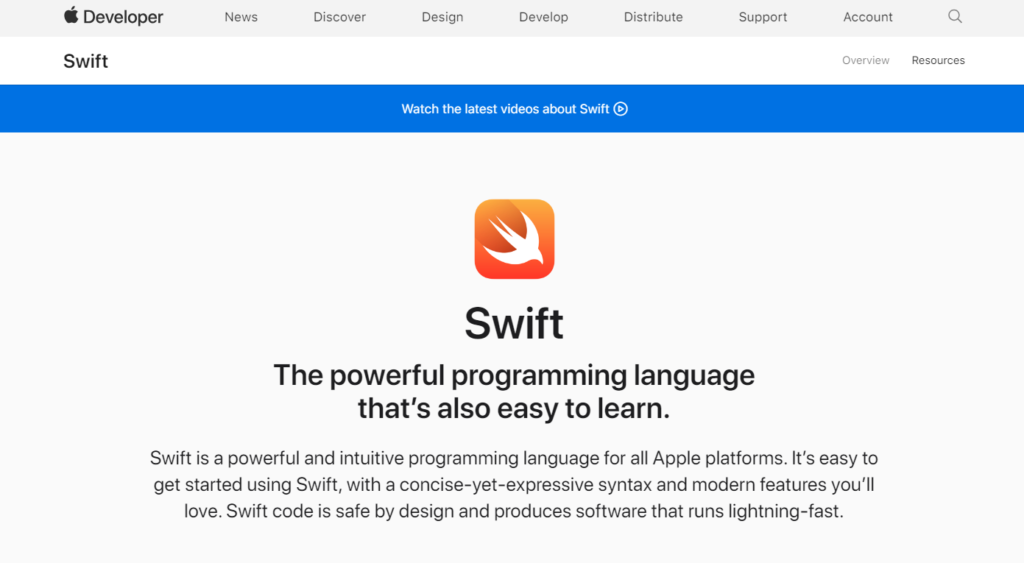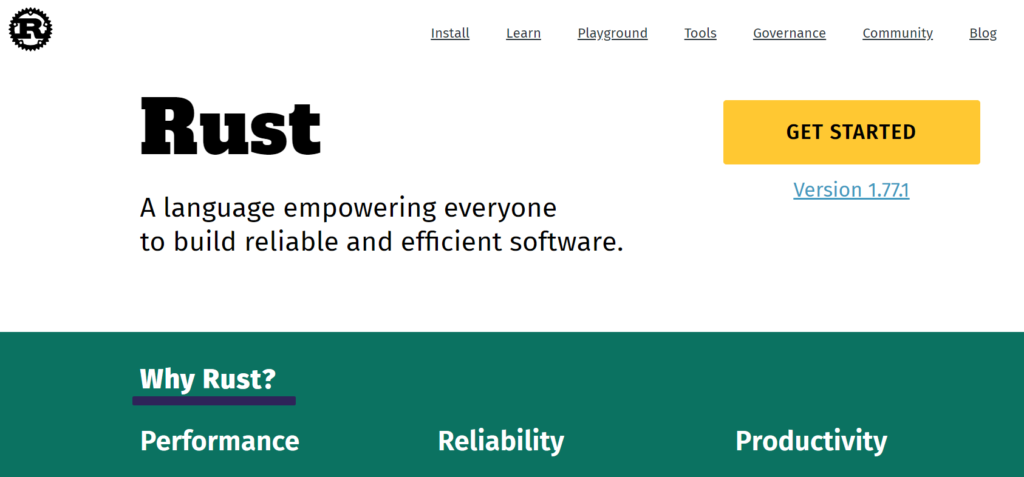In the ever-evolving realm of technology, staying ahead of the curve requires not only a deep understanding of coding principles but also proficiency in languages that align with industry trends. As we step into 2024, certain coding languages continue to dominate the freelancing landscape, offering exciting freelance opportunities for developers. Here’s a guide to the seven best coding languages you should consider learning this year to future-proof your skills and enhance your career prospects.
Contents
1. Python
Python’s versatility and readability make it a perennial favorite among developers. Widely used in data science, artificial intelligence, web development, and more, Python’s user-friendly syntax and extensive libraries make it an excellent language for beginners and seasoned developers alike.

Why Learn Python?
- Versatility: Python is a versatile programming language used across various domains, including web development, data analysis, artificial intelligence, machine learning, automation, and more. Its versatility makes it a valuable skill for professionals in diverse fields.
- Ease of Learning: Python is known for its simple and readable syntax, making it an ideal choice for beginners. Its straightforward syntax allows new programmers to quickly grasp fundamental concepts and start building practical applications, leading to a faster learning curve.
- High Demand: Python’s widespread adoption and versatility have led to a high demand for Python developers in the freelance market. Many tech companies, startups, and organizations are actively seeking professionals with Python skills to fill roles in software development, data science, machine learning, and beyond. Learning Python can open up numerous career opportunities and enhance your employability in the ever-evolving tech industry.
Who Uses Python?
- Software Engineer/Developer
- Data Scientist
- Machine Learning Engineer
- DevOps Engineer
- Cybersecurity Analyst
- Quantitative Analyst/Financial Analyst
- Anti-Fraud Analyst
What Companies Utilize Python?
- Netflix
- Quora
- Uber
- Robinhood
2. JavaScript
As the backbone of web development, JavaScript remains a crucial language to master. With the rise of front-end frameworks like React and Vue.js and the advent of server-side JavaScript (Node.js), proficiency in JavaScript opens doors to full-stack development opportunities.

Why Learn JavaScript?
- Frontend and Backend Development: JavaScript is a versatile programming language that can be used for both frontend and backend development. As the primary language for building interactive and dynamic websites, JavaScript allows developers to create engaging user interfaces, handle client-side interactions, and build scalable server-side applications using frameworks like Node.js.
- Wide Adoption: JavaScript is one of the most widely adopted programming languages in the world. It is supported by all major web browsers and used by millions of developers worldwide. Its widespread adoption means that learning JavaScript opens up numerous job opportunities and career paths in the tech industry.
- Rich Ecosystem: JavaScript has a rich ecosystem of libraries, frameworks, and tools that make development faster, more efficient, and more enjoyable. From popular frontend frameworks like React, Vue.js, and Angular to powerful backend frameworks like Express.js, JavaScript offers developers a wide range of tools to streamline their development workflow and build robust applications. Learning JavaScript allows you to tap into this vibrant ecosystem and stay up-to-date with the latest trends and technologies in web development.
Who Uses JavaScript?
- Frontend Developer
- Full Stack Developer
- UI/UX Designer
- Mobile App Developer
- Game Developer
- Backend Developer
- Technical Support Engineer
What Companies Utilize JavaScript?
- Walmart
- Freelancer
- Trello
- EuroNews
- GoDaddy
- Citibank
3. Java
A stalwart in the programming world, Java continues to be a go-to language for building enterprise-level applications, Android mobile apps, and large-scale systems. Its portability and strong community support contribute to its enduring popularity.

Why Learn Java?
- Platform Independence: Java is renowned for its “write once, run anywhere” mantra, meaning code written in Java can run on any platform that supports Java Virtual Machine (JVM). This makes Java a versatile language suitable for building cross-platform applications.
- Strong Ecosystem: Java boasts a strong ecosystem of libraries, frameworks, and tools that simplify development and accelerate the creation of robust applications. From enterprise-level frameworks like Spring to versatile build tools like Maven and Gradle, Java offers developers a comprehensive toolkit for building a wide range of applications.
- High Demand: Java has been a staple in the software development industry for decades, leading to a high demand for Java developers across various sectors. Learning Java can open up numerous job opportunities and career paths in fields like web development, mobile app development, enterprise software development, and more.
Who Uses Java?
- Java Developer
- Software Engineer
- Android Developer
- Backend Developer
- Big Data Engineer
- DevOps Engineer
- Enterprise Architect
What Companies Utilize Java?
- Upwork
- Spotify
- Accenture
- Zillow
- Microsoft
- Airbnb
4. TypeScript
A superset of JavaScript, TypeScript is gaining traction for its ability to add static typing to JavaScript, enhancing code maintainability and catching errors early in the development process. It’s widely adopted in projects using Angular, making it a valuable skill for front-end developers.

Why Learn TypeScript?
- Type Safety: TypeScript introduces static typing to JavaScript, allowing developers to catch errors early in the development process and write more robust and maintainable code. This enhances code quality and reduces the likelihood of runtime errors, making TypeScript an attractive choice for building large-scale applications.
- Enhanced Tooling: TypeScript comes with a powerful type system and advanced tooling support, including features like code completion, refactoring tools, and integrated development environments (IDEs) like Visual Studio Code. These tools improve developer productivity and streamline the development workflow.
- Growing Adoption: TypeScript has been steadily gaining popularity in the web development community, with many prominent projects and companies adopting it for frontend and backend development. Learning TypeScript equips developers with a valuable skill set that aligns with industry trends and best practices in modern web development.
Who Uses Typescript?
- Frontend Developer
- Full Stack Developer
- Node.js Developer
- Software Engineer
- Mobile App Developer
- Web Developer
- Technical Lead
What Companies Utilize Typescript?
- Slack
- Revolut
- Eden Health
- X
- Groupon
- Medium
- Capital One
5. Go (Golang)
Developed by Google, Go has gained prominence for its simplicity, efficiency, and concurrency support. Go is particularly well-suited for building scalable and efficient applications, making it an excellent choice for projects requiring high performance and speed.

Why Learn Go?
- Concurrency: Go is designed with concurrency in mind, making it easy to write concurrent and parallel programs efficiently. Its built-in concurrency primitives, such as goroutines and channels, simplify the development of scalable and high-performance applications, particularly in systems programming and distributed computing.
- Efficiency: Go is known for its fast compilation speed and efficient runtime performance, making it well-suited for building performance-critical applications. Its statically typed nature and minimalistic syntax contribute to faster development cycles and optimized resource utilization.
- Scalability: Go’s simplicity and built-in support for concurrency make it an excellent choice for building scalable and resilient systems. Its lightweight threads (goroutines) and efficient garbage collector enable developers to build highly concurrent and scalable applications that can handle thousands of simultaneous connections with ease.
Who Uses Go?
- Backend Developer
- DevOps Engineer
- Systems Engineer
- Cloud Engineer
- Security Engineer
- Blockchain Developer
- Site Reliability Engineer (SRE)
What Companies Utilize Go?
- SoundCloud
- Dropbox
- American Express
- Alibaba
- Twitch
- Daily Motion
6. Swift
If mobile app development is your focus, Swift is the language to learn. Developed by Apple, Swift is the go-to language for building iOS and macOS applications. With its modern syntax and emphasis on safety, Swift offers a seamless development experience.

Why Learn Swift?
- Modern Language Features: Swift is a modern and expressive programming language with a concise syntax and powerful features like optionals, generics, and type inference. Its modern design promotes safe and efficient code, enabling developers to write cleaner, more readable, and more maintainable codebases.
- Cross-Platform Development: Swift is not limited to iOS development; it can also be used for macOS, watchOS, and tvOS development. With the introduction of Swift on Linux, developers can now leverage Swift’s features and performance benefits to build server-side applications and command-line tools, making it a versatile language for cross-platform development.
- Apple Ecosystem Integration: Swift seamlessly integrates with Apple’s ecosystem of frameworks, libraries, and tools, offering developers a unified and cohesive development experience. Its interoperability with Objective-C allows developers to leverage existing Objective-C codebases and frameworks, making migration to Swift smoother and more gradual.
Who Uses Swift?
- iOS Developer
- macOS Developer
- WatchOS Developer
- tvOS Developer
- Cross-Platform Mobile Developer
- Software Engineer
- Augmented Reality (AR) Developer
What Companies Utilize Swift?
- Apple
- Lyft
- WordPress
- Coursera
- Kickstarter
- Asana
- Stripe
7. Rust
Known for its emphasis on performance, memory safety, and zero-cost abstractions, Rust is gaining popularity in systems programming. It’s particularly valuable for projects where speed and security are paramount, such as operating systems, game engines, and network services.

Why Learn Rust?
- Memory Safety: Rust’s ownership system and borrow checker enforce strict memory safety guarantees at compile time, eliminating common pitfalls like null pointer dereferencing, buffer overflows, and data races. This makes Rust particularly well-suited for building safe and secure systems-level software, such as operating systems, game engines, and web browsers.
- Concurrency Without Data Races: Rust’s concurrency model allows developers to write concurrent code without the risk of data races, thanks to its ownership and borrowing system. This enables developers to build highly concurrent and parallel applications that are both safe and efficient.
- Performance: Rust offers performance comparable to that of low-level programming languages like C and C++, thanks to its zero-cost abstractions and efficient memory management. Its minimal runtime and small footprint make Rust an attractive choice for building high-performance and resource-efficient applications in various domains, including systems programming, embedded development, and networking.
Who Uses Rust?
- Systems Programmer
- Network Engineer
- Game Developer
- Blockchain Developer
- Cloud Infrastructure Engineer
- Security Researcher
- Embedded Systems Engineer
What Companies Utilize Rust?
- Cloudflare
- Discord
- Figma
- Ethereum
- Mozilla
- Amazon

Choosing the Right Language
When deciding which language to learn, consider your career goals, the type of projects you’re interested in, and industry trends. Here are some tips to help you make an informed decision.
Evaluate Your Goals
Consider the domains you’re passionate about—whether it’s web development, data science, mobile app development, or system programming—and choose a language aligned with your career aspirations.
Stay Informed About Trends
Keep abreast of industry trends and emerging technologies. Languages that are widely adopted in innovative projects or growing fields can offer valuable career opportunities.
Explore Cross-Disciplinary
Some languages, like Python and JavaScript, are versatile and applicable in various domains. Learning a language with cross-disciplinary applications can broaden your skill set.
Hands-On Experience
Engage in hands-on projects to solidify your learning. Building real-world applications is an effective way to reinforce your understanding of a programming language.
As you embark on the journey of mastering coding languages in 2024, consider the evolving demands of the tech industry. Whether you’re a seasoned developer looking to expand your skill set or a beginner eager to enter the world of coding, choosing the right languages can pave the way for a successful and fulfilling career. Stay curious, embrace continuous learning, and position yourself at the forefront of technological innovation by mastering the best coding languages of the year.


Pingback: The New Frontier: Data Science Career Insights - WEBCIRE
Pingback: 7 Freelance Gigs for Students: Opportunities Beyond the Classroom